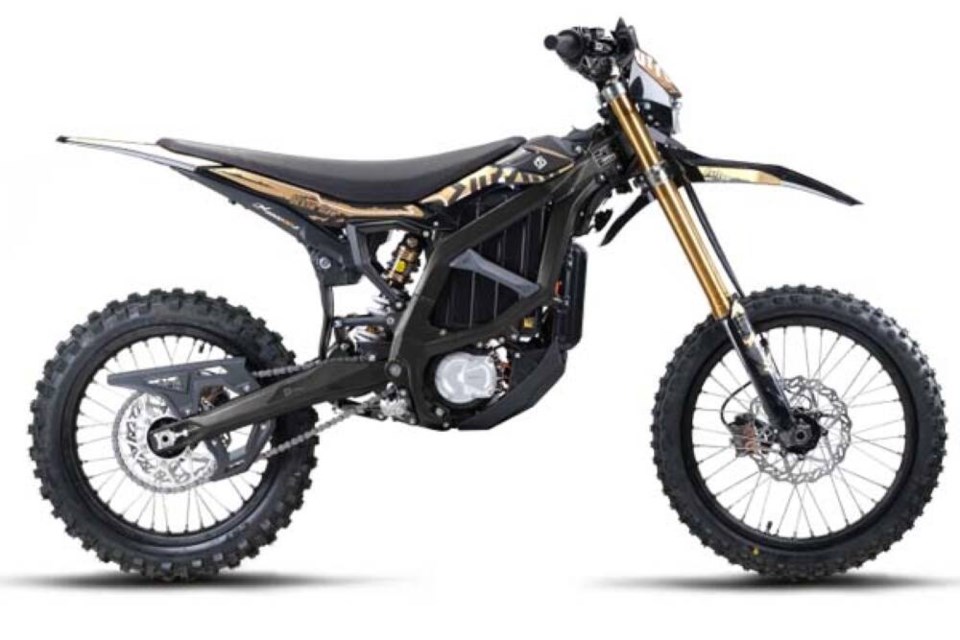Police are sounding the alarm over a climb in the sale and use of electric dirt bikes on the North Shore.
Both West Vancouver police and North Vancouver RCMP have recently issued public warnings about the illegal bikes, which they say have been making a noticeable appearance on local streets.
E-dirt bikes are new to the market, compared to traditional gas-powered dirt bikes. But both are only allowed off-road, and it’s illegal to ride them on roads, sidewalks, bike lanes or any public space, according to the Motor Vehicle Act.
In most cases, it’s unsuspecting parents who buy these bikes for their kids, believing they are legal for road use – but in fact, they are illegal, said Cpl. Mansoor Sahak, North Vancouver RCMP spokesperson.
“We are taking this opportunity to educate parents on the use of e-dirt bikes so that fines and injuries can be avoided,” he said.
Sahak said he’s seen a sharp rise in reports of dangerous and erratic behaviours from riders of these bikes, which are typically the Surron and Talaria brand bikes.
In order to be legal for street use, e-bikes must be limited to 32 kilometres per hour (some e-dirt bikes can travel up to 110 km/h); they can’t exceed 500 watts of power (e-dirt bikes can output up to 22,000 W); and they must have usable pedals (most e-dirt bikes don’t have pedals).
If you’re caught riding an e-dirt bike on a public road, you could face fines: for no insurance ($598), no licence ($276 and three demerit points), driving without due care and attention ($368 and six demerit points) or driving without consideration ($196 and six demerit points).
“These bikes are not covered under any insurance policy and can expose you to personal civil liability,” he said. “Infractions can also lead to increased insurance premiums for families when declaring high-risk drivers.”
Depending on the circumstances, you could also face potential criminal charges, Sahak said.
“North Vancouver RCMP will continue targeting unsafe motorists and cyclists through increased traffic enforcement and initiatives aimed at reducing risks and keeping the community safe,” he said.
Other personal mobility devices also illegal
Per the Motor Vehicle Act, several other types of personal mobility devices are also illegal on public roads and sidewalks. Those include Onewheels, powered skateboards and pocket bikes (mini motorcycles).
Sahak said police could potentially enforce these devices, but they aren’t as big of a concern as e-dirt bikes.
In 2022, electric kick scooters were legalized on the North Shore, and in 2024 those regulations were renewed for another four years.
Legal e-scooters must have a maximum speed capability of 25 km/h, must weigh 45 kilograms or less and have a power output of at most 500 W.
E-scooter riders can’t ride on a shoulder, sidewalk or crosswalk, and must use a designated bike lane wherever there is one.
On roads with a speed limit of 50 km/h or less, e-scooters must ride in a designated cycling lane if there is one, or stay as far right as is safely possible unless otherwise directed.
On roads with a speed limit above 50 km/h, riders can only use an electric kick scooter in a designated cycling lane.
[email protected]
twitter.com/nick_laba
@nicklaba.bsky.social
Want to stay updated on North Vancouver and West Vancouver news? Sign up for our free daily newsletter.





